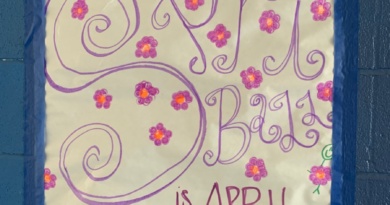Kwanzaa begins

Bluedevilhub.com Staff–
Sophomore Matthew Cheung celebrates Hanukkah. Cheung is familiar with Kwanzaa but also has some questions.
“My parents have some friends that actually celebrate Kwanzaa, but we aren’t really that close and I’m not sure what they do,” Cheung said.
Cheung, like many Americans sees the occasional mention of the holiday, but is not aware of the deeper meaning or of the history behind Kwanzaa. While many people are familiar with the Christmas story or the candles of Hanukkah, Kwanzaa remains a mystery.
In fact, although Davis High has a fairly active but small African American community, students who observe Kwanzaa are few and far between.
Sophomore Francis Avoce has an aunt and uncle who have a quiet, private celebration at home with a few friends every year for Kwanzaa.
“They don’t really talk to us about it and we don’t ask. It’s just a part of their life like Christmas is for me,” Avoce said.
Seven candles are lit during Kwanzaa, one on each day. At DHS, although there are many festivities for the winter holiday season, there is no celebration for Kwanzaa in particular.
One of the reasons for this could be the general lack of African-American faculty and students.
“One of the biggest problems at this school is the lack of color among the adult faculty. There are around 50 African-American students at DHS, but as far as I know, there are none who celebrate Kwanzaa,” English teacher Gwyneth Bruch said.
According to Kwanzaa’s official website (officialkwanzaawebsite.org) Kwanzaa was invented in 1966 by Dr. Maulana Karenga. Each of the seven days of Kwanzaa stands for one of its core values including unity, self-determination, purpose and faith.
During the seven days of Kwanzaa, the homes of observers are alive with brightness. Vibrant green and red African objects such as baskets, cloth patterns and harvest symbols. In Davis, however, such homes are rare.
“Contrary to popular belief, Kwanzaa is in no way related to religion and can be celebrated in addition to other Winter holidays such as Christmas or Hanukkah,” UC Davis Professor of American Studies Jay Mechling said.
Mechling points to the slowing of the black power movement as the explanation for Kwanzaa’s relative obscurity in recent years.
“Kwanzaa started as a sort of holiday to support the black power movement and gave many African-Americans the chance to be proud,” Mechling said.
It is estimated that in the United States, about one to five percent of African Americans celebrate Kwanzaa. According to Dr. Karenga, the holiday is starting to get some observers internationally as well, including in Great Britain, Canada, France, Brazil and Jamaica.



